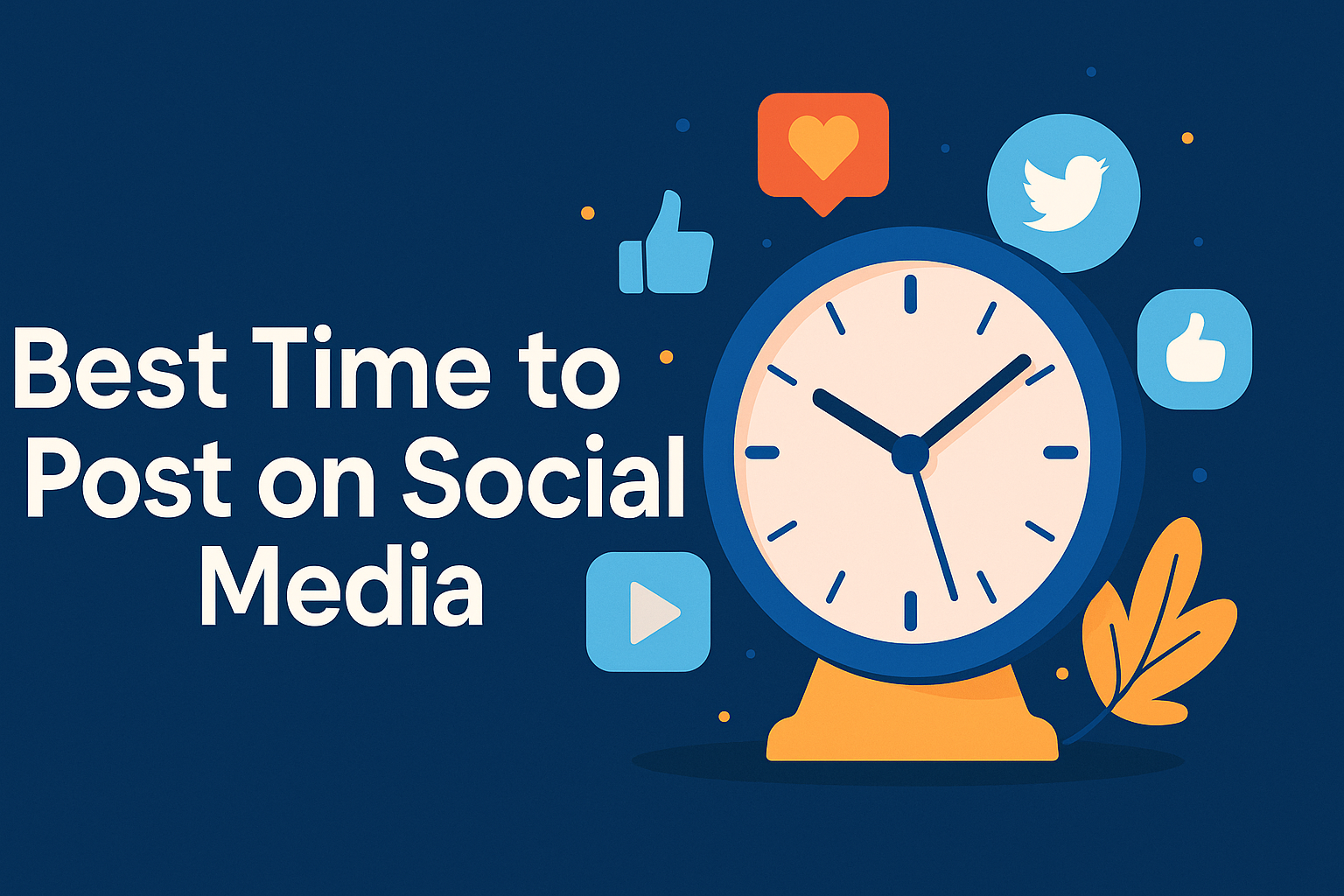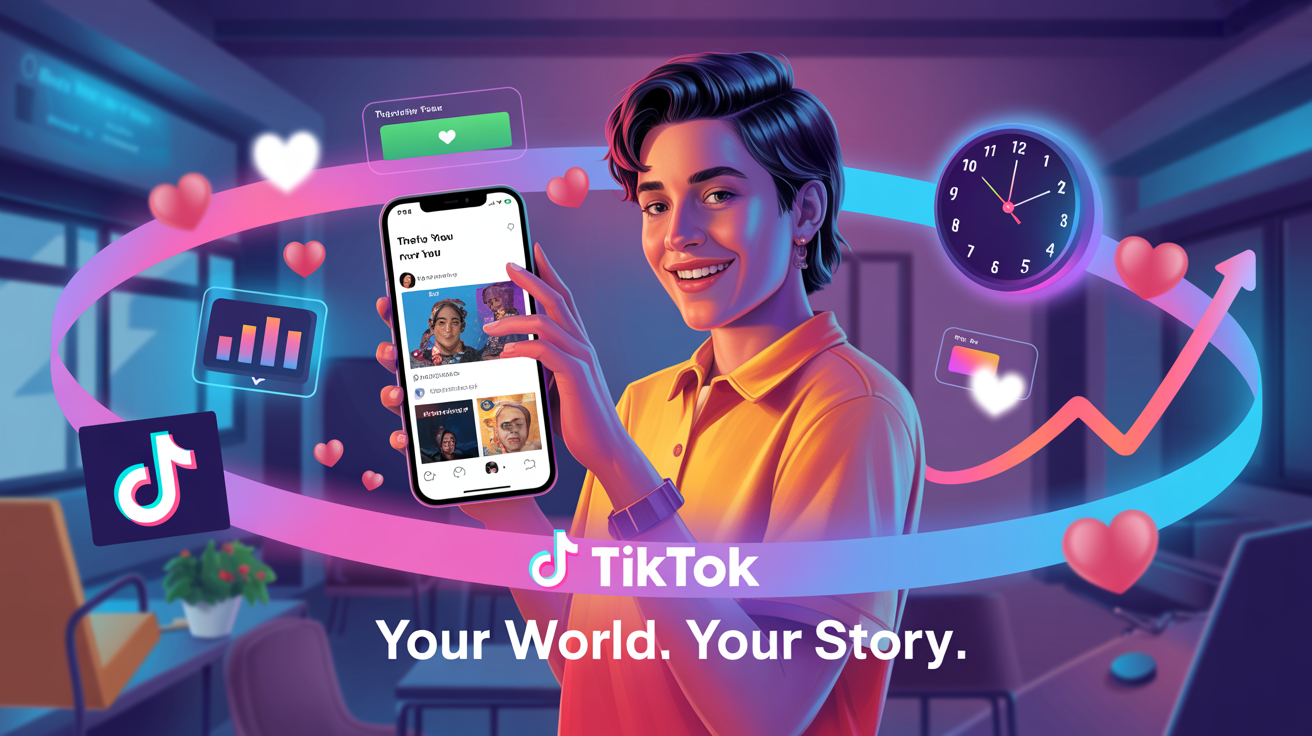Understanding the best time to post on social media is not just a marketing trick — it’s a proven strategy to increase visibility, engagement, and follower growth. Whether you’re a student building a personal brand, a beginner in digital marketing, or managing a campus page, this guide breaks it all down in the simplest way.
Contents
Why Timing Matters in Social Media Strategy
Social media platforms don’t show posts chronologically anymore. Instead, they rely on algorithms — and one of the biggest factors these algorithms consider is how quickly your audience interacts with your post.
Here’s why perfect timing matters:
- More Visibility: Posting when your audience is active increases chances of being seen.
- Better Engagement: Likes, shares, and comments come in faster.
- Higher Reach: Early interaction signals the algorithm to show your post to more people.
- Less Competition: Posting during the right slots helps your post stand out.
General Best Time to Post on Each Social Media Platform (2025 Trends)
These are global engagement trends ideal for students, creators, and young marketers:
| Platform | Best Days | Best Time | Reason / Why It Works |
|---|
| Tuesday and Wednesday | 10 AM – 1 PM | Midday engagement peaks; reels perform best in the afternoon |
| Tuesday and Thursday | 8 AM – 12 PM | Morning users check updates before work or college |
| X (Twitter) | Monday to Friday | 9 AM – 12 PM | Users are most active during breaks from work or classes |
| Tuesday to Thursday | 9 AM – 12 PM | Ideal for professional and academic engagement |
| TikTok | Tuesday to Thursday | 2 PM – 6 PM | Gen Z and students scroll during post-class relaxation hours |
| Weekends | 7 PM – 10 PM | Evening leisure time for hobby-focused and inspiration content |
🗓️ 7-Month Social Media Posting Strategy for Maximum Growth
Whether you’re managing a brand or just starting your social media journey, follow this structured roadmap:
Month 1: Audit & Baseline
- Review your current social media posting schedule
- Note what time of day your posts get the most likes/comments
- Set goals: reach, engagement, website clicks, etc.
Month 2: Experimentation
- Try posting at different times during suggested windows
- Mix up content formats (stories, reels, videos, infographics)
- Use analytics tools to track performance
Month 3: Optimization
- Stick to top-performing time slots
- Create a weekly posting calendar
- Start engaging in the first 30 minutes of posting
Month 4: Expansion
- Add a new platform (e.g., Pinterest or LinkedIn)
- Collaborate with student influencers or creators
- Cross-post content and optimize timing for each platform
Month 5: Deep Analytics
- Track saves, shares, and DMs — not just likes
- Ask followers via polls when they are most active
- Adjust your content to suit different time slots
Month 6: Campaign Integration
- Plan around academic events, festivals, or holidays
- Boost high-performing content during peak hours
- Use remarketing features (on Meta or TikTok)
Month 7: Review & Scale
- Review 6 months of data to find trends
- Increase frequency during best-performing windows
- Automate your content using scheduling tools
Smart Tips for Ongoing Success
- Check platform insights weekly — trends change fast.
- Repost your best content during different peak hours.
- Use student-focused hashtags during high traffic hours.
- Engage back — respond to DMs, comments, or shares quickly!
Final Thoughts: Timing + Consistency = Growth
Perfect timing can give your posts the edge they need, but it’s consistency and creativity that build loyal audiences. Whether you’re growing a student-led page, your own creator profile, or a brand — follow this roadmap, stay data-driven, and be flexible.
Explore more such Social Media and Digital Marketing Strategies!



